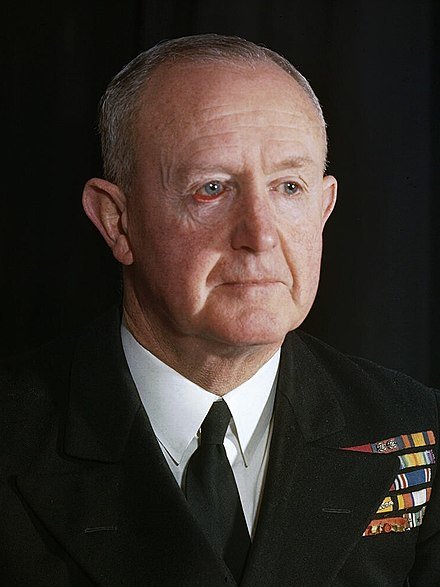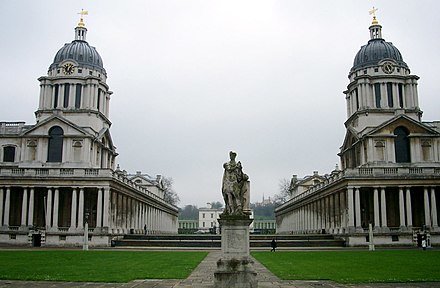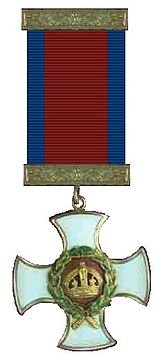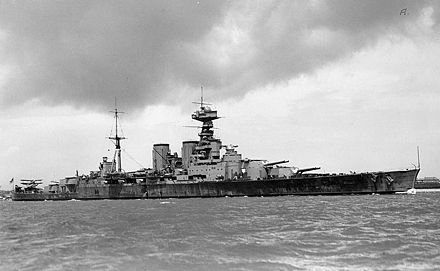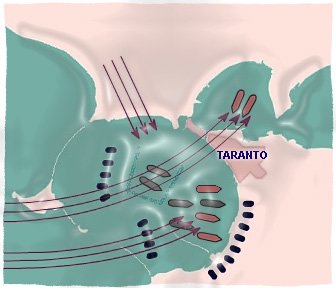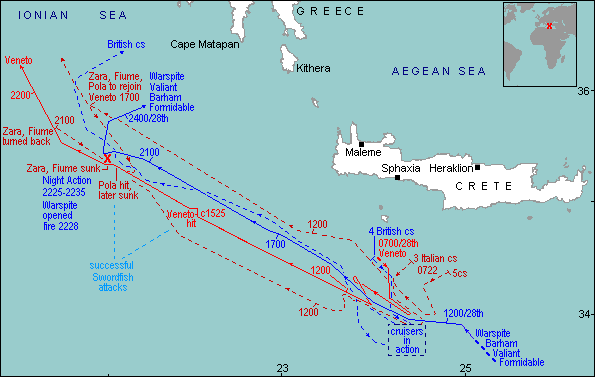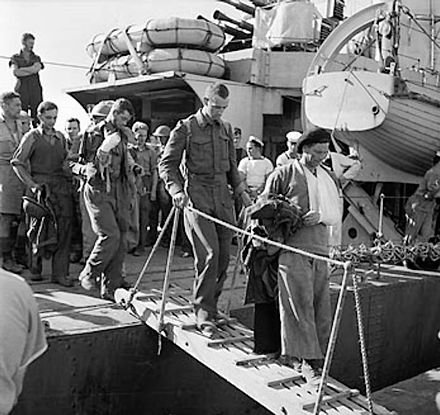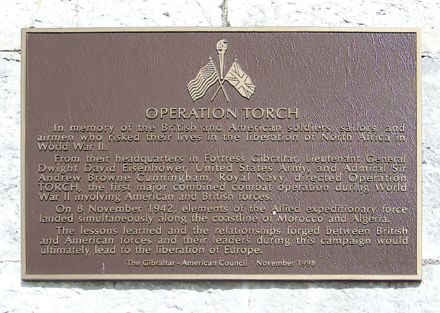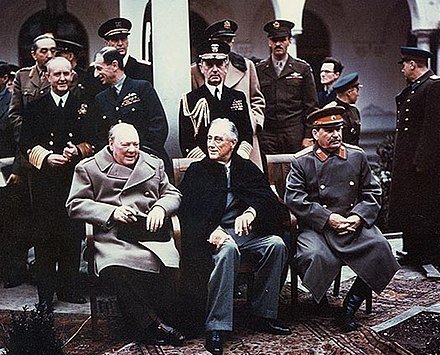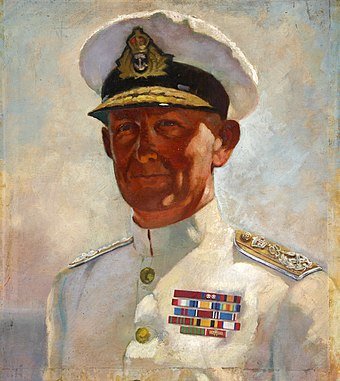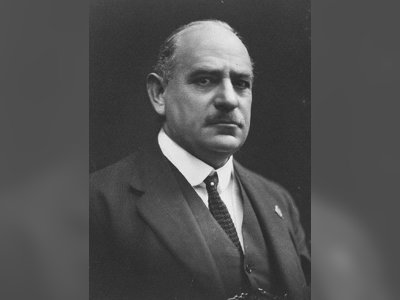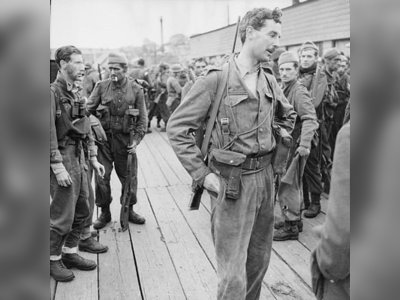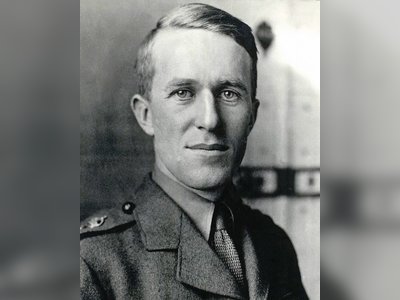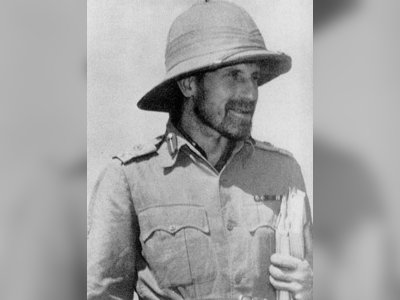British Heritage
Remember, Cherish, Learn.
beta
Andrew Cunningham, 1st Viscount Cunningham of Hyndhope
Contribution of Admiral Andrew Cunningham to British Heritage.
Admiral of the Fleet Andrew Browne Cunningham, 1st Viscount Cunningham of Hyndhope, played a significant role in shaping British naval history and heritage during the tumultuous times of the Second World War. As one of the Royal Navy's most distinguished and respected officers, he led British naval forces to crucial victories in the Mediterranean, defending key supply lines, protecting British interests, and securing strategic victories against enemy fleets. His legacy extends beyond his military achievements, as he held several high-ranking ceremonial positions, leaving a lasting impact on the British monarchy and society.
Born on January 7, 1883, in Rathmines, County Dublin, Cunningham's journey into the Royal Navy began when he enrolled at the training ship Britannia as a naval cadet in 1897. Showing exceptional promise and talent, he quickly rose through the ranks and served during the First World War. His actions during this period earned him the Distinguished Service Order (DSO) and two bars, recognizing his bravery and exceptional service.
In the Second World War, Cunningham's leadership and strategic brilliance became evident as he assumed the role of Commander-in-Chief, Mediterranean Fleet. One of his most notable victories was the attack on Taranto in 1940, a pioneering all-aircraft naval attack that significantly weakened the Italian fleet. This successful operation set the stage for future naval engagements.
Another momentous triumph was the Battle of Cape Matapan in 1941, where Cunningham's fleet decisively defeated the Italian Navy. This victory not only secured British control over the Mediterranean but also played a crucial role in the subsequent events of the war.
As the commander responsible for the safety of convoys supplying Egypt and Malta, Cunningham's leadership was instrumental in maintaining the critical supply lines that sustained British forces in the region. His foresight and readiness to act in the face of potential threats helped safeguard British interests.
Cunningham's excellence and dedication to his duties led to his appointment as First Sea Lord, the professional head of the Royal Navy, in 1943. In this role, he oversaw strategic naval planning, attended important conferences, and played a key role in shaping the Allied victory. His outstanding service and accomplishments were recognized with numerous honors and awards, including being appointed a Knight Grand Cross of the Order of the Bath (GCB), the Order of Merit (OM), and being created a Baron and subsequently a Viscount.
Admiral Andrew Cunningham's legacy continues to be celebrated in British naval history. His contributions to the Allied victory in the Mediterranean played a crucial role in securing the region and furthering the war effort. Beyond his military achievements, Cunningham's willingness to defend the British monarchy and support British interests in various ceremonial roles showcased his dedication to the nation.
Cunningham's exceptional leadership, courage, and tactical acumen have left an indelible mark on British heritage. He exemplifies the noble tradition of the Royal Navy and stands as a symbol of bravery, determination, and unwavering service to the nation. His name remains synonymous with triumphs at sea and enduring commitment to the principles of British valor and integrity.
Admiral of the Fleet Andrew Browne Cunningham, 1st Viscount Cunningham of Hyndhope, KT, GCB, OM, DSO & Two Bars, will always be remembered as "ABC," the man who led the British naval forces to victory and safeguarded the British Heritage on the high seas during one of the most challenging periods in history. His remarkable contributions and legacy continue to inspire future generations and serve as a beacon of honor and courage within the annals of British history.
Early Life and Naval Career
Born on January 7, 1883, in Rathmines, County Dublin, Cunningham's journey into the Royal Navy began when he enrolled at the training ship Britannia as a naval cadet in 1897. Showing exceptional promise and talent, he quickly rose through the ranks and served during the First World War. His actions during this period earned him the Distinguished Service Order (DSO) and two bars, recognizing his bravery and exceptional service.
Campaigns and Victories during the Second World War
In the Second World War, Cunningham's leadership and strategic brilliance became evident as he assumed the role of Commander-in-Chief, Mediterranean Fleet. One of his most notable victories was the attack on Taranto in 1940, a pioneering all-aircraft naval attack that significantly weakened the Italian fleet. This successful operation set the stage for future naval engagements.
Another momentous triumph was the Battle of Cape Matapan in 1941, where Cunningham's fleet decisively defeated the Italian Navy. This victory not only secured British control over the Mediterranean but also played a crucial role in the subsequent events of the war.
As the commander responsible for the safety of convoys supplying Egypt and Malta, Cunningham's leadership was instrumental in maintaining the critical supply lines that sustained British forces in the region. His foresight and readiness to act in the face of potential threats helped safeguard British interests.
Prominent Positions and Honors
Cunningham's excellence and dedication to his duties led to his appointment as First Sea Lord, the professional head of the Royal Navy, in 1943. In this role, he oversaw strategic naval planning, attended important conferences, and played a key role in shaping the Allied victory. His outstanding service and accomplishments were recognized with numerous honors and awards, including being appointed a Knight Grand Cross of the Order of the Bath (GCB), the Order of Merit (OM), and being created a Baron and subsequently a Viscount.
Legacy and Impact
Admiral Andrew Cunningham's legacy continues to be celebrated in British naval history. His contributions to the Allied victory in the Mediterranean played a crucial role in securing the region and furthering the war effort. Beyond his military achievements, Cunningham's willingness to defend the British monarchy and support British interests in various ceremonial roles showcased his dedication to the nation.
Cunningham's exceptional leadership, courage, and tactical acumen have left an indelible mark on British heritage. He exemplifies the noble tradition of the Royal Navy and stands as a symbol of bravery, determination, and unwavering service to the nation. His name remains synonymous with triumphs at sea and enduring commitment to the principles of British valor and integrity.
Admiral of the Fleet Andrew Browne Cunningham, 1st Viscount Cunningham of Hyndhope, KT, GCB, OM, DSO & Two Bars, will always be remembered as "ABC," the man who led the British naval forces to victory and safeguarded the British Heritage on the high seas during one of the most challenging periods in history. His remarkable contributions and legacy continue to inspire future generations and serve as a beacon of honor and courage within the annals of British history.
- Andrew Cunningham, 1st Viscount Cunningham of Hyndhopeen.wikipedia.org
